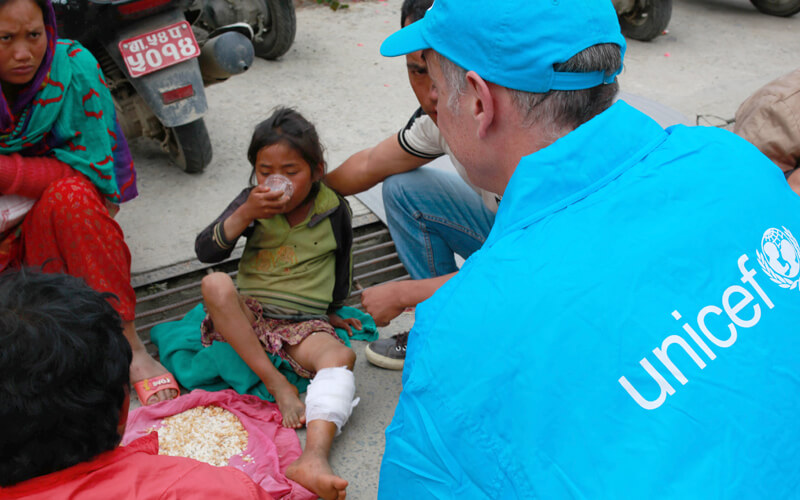Case Study
How, for Unicef,
it pays to be prepared
Live testing the crisis response plan
Great teamwork & to achieve a common goal
Know your shit
About the project
The stakes are high when it comes to emergency appeals. Somewhere, thousands of human lives hang in the balance. Waiting for you to get your campaign to market, collect money and send them the lifesaving food, water, shelter or medicine they need. And so it as for the Nepal earthquake.
- ROI of 23:1
- $4.4 million raised
- 57% of donors new to UNICEF
- 48hr turnaround

The violent Nepal Earthquake occurred late on a Saturday night, Australia time. From the very first reports, the team at UNICEF knew the lives of tens of thousands of children were at risk.
The knock on effects meant that water, food, medicine and shelter were of utmost importance and combined with the cold weather, the situation was not looking great.
They needed a quick effective campaign ASAP. It’s in these situations planning ahead pays off.
As part of regular business practice, I had in place a crisis response plan. While covering the basics such as file recovery, backup systems and backup locations, we’d also planned for a campaign crisis response for clients who needed it.
This involved mapping out complete campaign processes and files and having a crisis team that had signed on for any incident.
After that late Saturday night call, 39 separate pieces of communication from press & outdoor to print & online was delivered within 48 hours – a full, consistent campaign for the Nepal Emergency Appeal.
This was a time when educating yourself on the machinations behind the work was never more important.
This included knowing every specification for every digital placement in advance so that the providers could go live with zero friction.
It meant that we had to ensure a smooth working process with writers and printers to avoid errors and delays.
And it also meant understanding the client and their business fully to predict what is needed before they even knew they needed it – they had more important work to do.
Results
- The campaign went smoothly with UNICEF being first to market and raised a total of $4.4 Million
- Almost 50% of donations was raised within the first seven days
- 39 campaign pieces in 48 hours
- Increased camaraderie amongst the crisis response team



